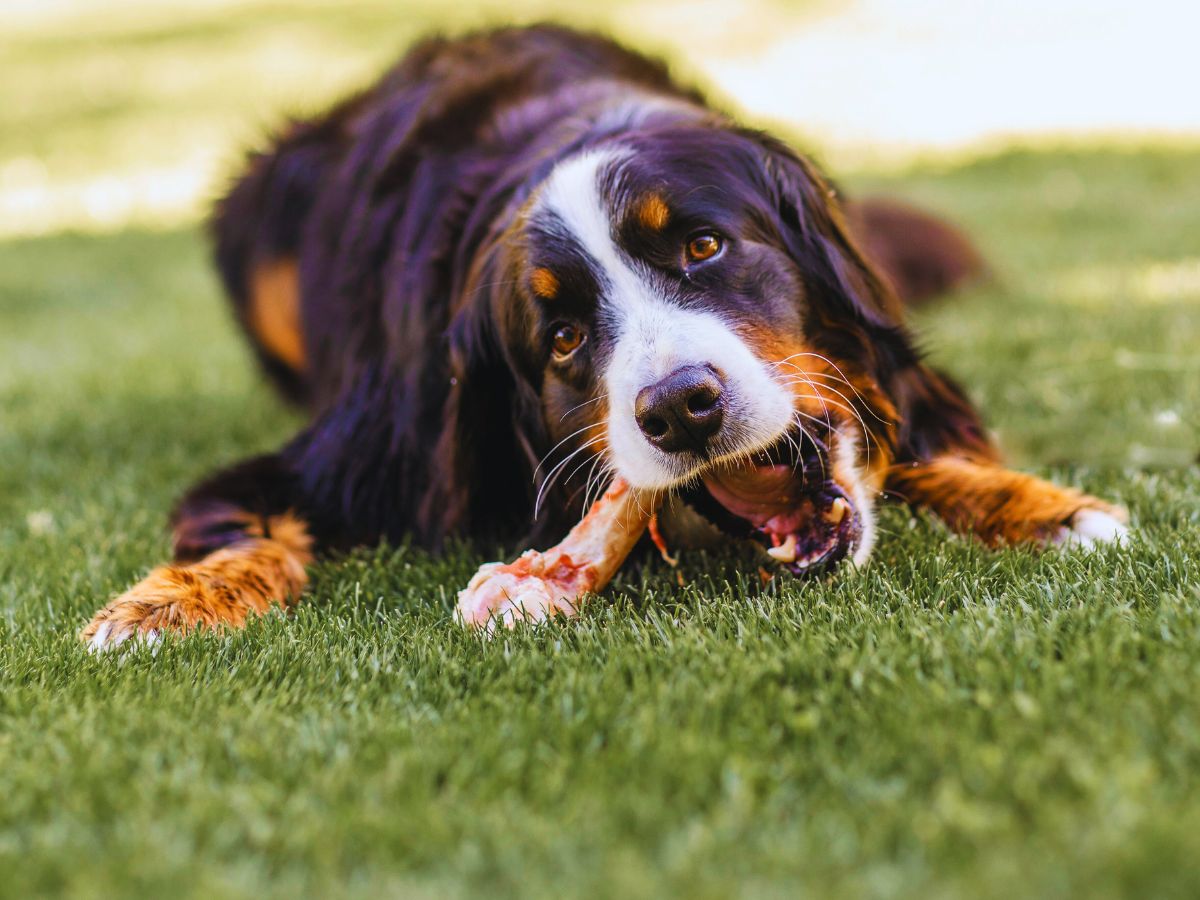3 Signs To Watch After Feeding Your Pet A Bone
Featured Article - 3 min read • Updated Nov 17, 2023
Medically reviewed by Dr. Claire Tan, BVSc (Qld.), BAppSc (Qld.)

Your pet may relish or even benefit from eating fresh raw bones every now and then, but pet owners like you should be aware of some possible risks.
Raw bones purchased fresh from the wet market/supermarket are better than cooked ones. Cooked bones are more brittle and may splinter into sharp shards that can perforate the stomach/intestinal lining. Cooking also strips away most of the nutritional value from fresh raw bones.
Regardless, when you feed raw bones to your dog or cat, you should observe them closely in case the bones do not go down as planned:
1) Your Pet is Pawing at His Mouth Frequently
The bone may be stuck in his mouth. Pry open your pet’s mouth and check if the bone is visible. Your pet might be pawing in an attempt to dislodge the bone. If you can, remove the bone using some of the methods in this useful handout.
But if your pet becomes stressed and struggles, do not try to remove the bone by yourself. He may need sedation to remove the bone, and that’s a job for your vet.
2) Your Pet is Choking
You pry his mouth open but can’t see the bone in the mouth and your pet is
having
- breathing difficulties
- dry heaving/coughing
- drooling a lot
The bone may be stuck in his upper respiratory tract. Bring him to see your vet immediately.
3) Your Pet Seems Normal But Starts Vomiting or Losing Appetite Hours/Days Later
The bone has made its way into the stomach, but sharp fragments of bone may pierce through the stomach/intestinal lining. Your pet can suffer from peritonitis, an infection from gut contents leaking into his abdomen, making him very sick. Take your pet to a vet immediately.
Bones may also cause direct obstruction or faecal impaction (where large, hard poop gets stuck in the intestines). This can show up via subtle signs, e.g. appetite loss, vomiting and constipation, over the next couple of hours or even days and your pet can become really sick very quickly. So don’t wait for these symptoms to worsen before seeing your vet.
If you are unsure, do visit your vet as this can potentially become a life-threatening situation. Your pet may need x-rays and/or ultrasound to locate problem and surgery to remove the bone.
For more advice on feeding bones, suitable type of bones etc., talk to our vets at Gaia. Book an appointment today at 6950 4533 (Jalan Besar) or 6727 7511 (Parksuites, Holland Grove Rd).
RELATED ARTICLES